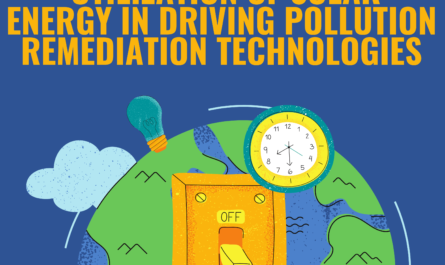
Muhammad Qasim1, Qudrat Ullah2
Department of Environmental Sciences, Government College University Faisalabad1, 2
Introduction:
One of the most important resources in our world, water is necessary for the survival of humans and the health of ecosystems. But as the world’s population expands and problems with water scarcity are exacerbated by climate change, it is crucial to manage this resource more effectively. We will examine the topic of water shortage and management in a changing environment in this blog post and go over some potential solutions.
The importance of water:
Water is necessary for all aspects of life, including drinking, irrigating, and industrial use. Additionally, it is essential to the ecosystem’s biodiversity and the support of aquatic habitats.
Understanding Water Scarcity:
A region or population does not have enough water resources to meet their needs, which is referred to as water scarcity. It happens when there aren’t enough water resources to meet the demands of ecosystems and human populations.
Causes of water scarcity:
Several things, such as excessive water consumption, pollution, and climate change, can lead to a shortage of water. Water scarcity is caused by a number of circumstances, including:
- Population growth: Water scarcity results from an increase in water demand as the population grows.
- Climate change: Water scarcity has occurred in many areas as a result of changes in rainfall patterns brought on by climate change.
- Pollution: Water scarcity can result from water contamination, which renders water unfit for human use.
- Overuse of water resources: Water shortages can be caused by human activities including agriculture, industry, and home use that deplete water resources.
- Impacts of water scarcity:
A lack of water can have negative effects on industry, agriculture, and public health. It may result in crop failure, droughts, and financial losses. Especially in areas where water is limited, it can intensify conflicts over water supplies. Water scarcity has a number of implications, including:
- Malnutrition: Food limitations brought on by a lack of water might result in malnutrition.
- Waterborne diseases: People are more likely to get waterborne illnesses like cholera and typhoid when they don’t have access to clean water.
- Drought: Drought brought on by a lack of water can result in crop failure, a lack of food, and financial losses.
- Migration: People may be forced to relocate to different areas in quest of water if they do not have access to it locally.
Climate Change and Water Scarcity:
By changing the timing and distribution of rainfall, bringing on more frequent and severe droughts, and raising evaporation rates, climate change is making water scarcity problems worse. As a result, there is less water available in many areas of the world, which causes conflicts over water supplies and increases rivalry between various water users.
Effects of Climate Change on Water Quality:
The risk of pollution and hazardous algal blooms contaminating water is rising as a result of climate change. Numerous variables, such as rising temperatures, altered precipitation patterns, and increasing runoff from urban and agricultural areas, are to blame for this.
Increased Water Demands Due to Climate Change:
Due to climate change, there is an increase in the requirement for water to meet domestic, industrial, and agricultural needs as temperatures rise. This worsens the problem of water scarcity by adding to the strain already placed on already-stressed water resources.
Water management strategies:
Water management plans must be created and applied to handle water scarcity in a changing climate. We must use sustainable water management techniques to deal with water scarcity in a climate that is changing. Some strategies for dealing with water scarcity include:
- Water conservation: Water conservation can lower the demand for water and contribute to the preservation of water supplies for future generations.
- Water harvesting: In areas with water shortages, collecting and storing rainwater can help to boost water supply.
- Desalination: Desalination is the process of purifying seawater to remove salt and other minerals and make it suitable for human consumption.
- Use of efficient irrigation techniques: Agriculture may use less water by using effective irrigation methods like drip irrigation.
- Collaboration: Collaboration between stakeholders, such as governments, communities, and enterprises, can aid in the efficient management of water resources.
Conclusion:
Many parts of the world are currently dealing with a serious problem of water scarcity. Water management is crucial since climate change is worsening the issue. We can guarantee that this essential resource will be accessible to future generations by putting into practice efficient water management measures.
Check Other Schlorships:


